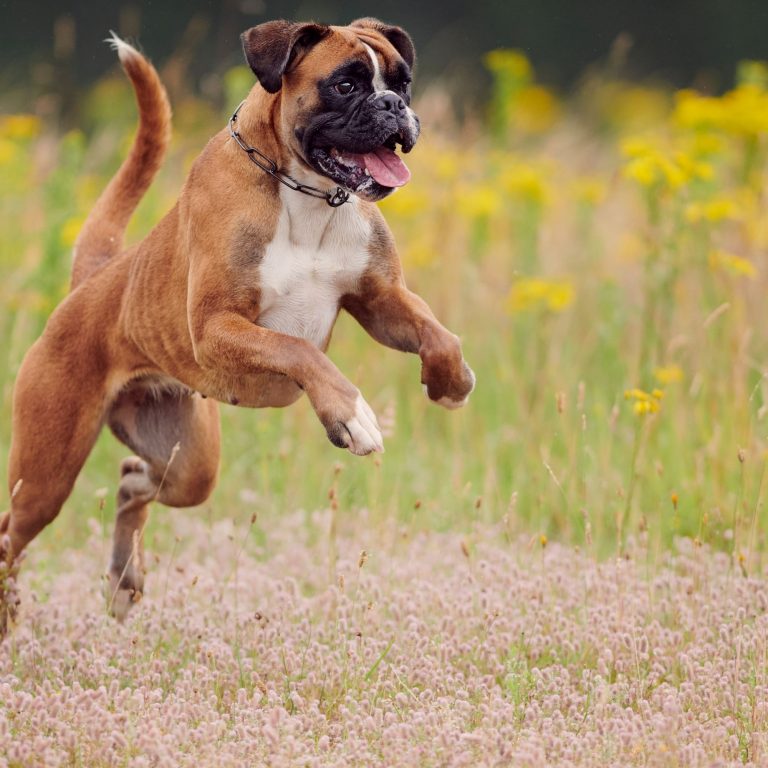Never Lose Sight: The Best GPS Tracker for Outdoor Pets
Keeping Your Outdoor Pets Safe
When it comes to the safety of your outdoor pets, GPS trackers can be a valuable tool. These devices provide you with the ability to track and monitor your pets’ whereabouts, giving you peace of mind and ensuring their safety. Let’s explore the importance of GPS trackers for outdoor pets and how they work.
The Importance of GPS Trackers for Outdoor Pets
For pet owners with outdoor pets, the risk of their furry friends wandering off or getting lost is a constant concern. GPS trackers offer a reliable solution by allowing you to track your pets in real-time. By attaching a GPS tracker to your pet’s collar or harness, you have the ability to monitor their location at any given moment.
In the unfortunate event that your pet goes missing, GPS trackers can significantly increase the chances of a successful reunion. By quickly pinpointing their location, you can act swiftly and efficiently to retrieve your beloved pet. This is especially crucial for outdoor cats and dogs that may roam far from home.
How GPS Trackers for Pets Work
GPS trackers for pets operate using a combination of satellite and cellular technology. The device utilizes GPS (Global Positioning System) satellites to determine the pet’s precise location. The GPS receiver within the tracker receives signals from multiple satellites and calculates the pet’s coordinates.
To relay this information to you, the GPS tracker uses cellular connectivity. It communicates with cell towers to transmit the location data to a mobile app or website accessible to the pet owner. This allows you to view your pet’s location in real-time, ensuring you are always aware of their whereabouts.
It’s important to note that GPS trackers require a cellular connection to function properly. Therefore, it’s crucial to choose a tracker that offers reliable cellular coverage in your area. For more details on the various features to consider when selecting a GPS tracker for your pet, refer to our article on gps tracker for pets.
By investing in a GPS tracker for your outdoor pets, you can enhance their safety and provide yourself with peace of mind. These devices offer a reliable way to track your pets’ location, ensuring you can quickly locate them if they wander off or get lost. Remember to choose a tracker with reliable cellular connectivity and explore additional features such as geofencing and live tracking to further enhance the safety of your furry companions.
Features to Consider
When choosing a GPS tracker for your outdoor pets, there are several key features to consider to ensure you find the right device to keep your furry friend safe. Here are three important features to keep in mind:
Cellular Connectivity
One of the crucial features to consider in a GPS tracker for pets is cellular connectivity. This feature allows the tracker to communicate with a cellular network, enabling real-time tracking and location updates. With cellular connectivity, you can receive accurate and up-to-date information about your pet’s whereabouts directly on your smartphone or computer.
It’s important to note that cellular connectivity requires a monthly or annual subscription plan for data transmission. This allows the GPS tracker to send location data to the service provider, which is then accessible to you through a dedicated mobile app or website. Make sure to consider the coverage area and network compatibility of the tracker before making a purchase.
For more information on GPS trackers with cellular connectivity, check out our articles on gps tracker for dogs and gps tracker for cats.
GPS Accuracy and Range
Another crucial aspect to consider when choosing a GPS tracker for outdoor pets is GPS accuracy and range. The accuracy of the GPS system determines how precisely the tracker can pinpoint your pet’s location. Look for a tracker that provides accurate location information within a reasonable margin of error.
Furthermore, consider the range of the GPS tracker. Some trackers have a limited range, while others offer a wider coverage area. Depending on your pet’s roaming habits, choose a tracker with a range that suits your needs. Keep in mind that a wider range often requires a stronger cellular network signal.
To find GPS trackers with live tracking and real-time location updates, check out our articles on gps tracker for pets and gps tracker with live tracking.
Battery Life and Rechargeability
The battery life and rechargeability of a GPS tracker are vital factors to consider. You want a tracker that can last long enough to provide continuous tracking without frequent recharging. Look for a tracker with a battery life that suits your pet’s outdoor activities and your own monitoring preferences.
Rechargeable GPS trackers are a popular choice as they offer convenience and cost-effectiveness. Avoid trackers that rely solely on disposable batteries, as constantly replacing batteries can become expensive and inconvenient.
For information on GPS trackers with long-lasting battery life and rechargeable options, check out our articles on small gps tracker for pets and pet tracker with real-time tracking.
By considering these important features—cellular connectivity, GPS accuracy and range, and battery life and rechargeability—you can make an informed decision when selecting a GPS tracker for your outdoor pets. Remember to also take into account your pet’s specific needs and the environment in which they will be using the tracker. With the right GPS tracker, you can have peace of mind knowing that your beloved pet is safe and secure.
Types of GPS Trackers for Outdoor Pets
When it comes to choosing a GPS tracker for your outdoor pets, there are several options available to cater to your specific needs. Here, we will explore three common types of GPS trackers: collar attachments, harness integrations, and standalone devices.
Collar Attachments
Collar attachments are GPS trackers that can be easily attached to your pet’s existing collar. These compact and lightweight devices are designed to provide unobtrusive tracking without causing discomfort to your pet. Collar attachments are typically suitable for both dogs and cats, offering a versatile option for pet owners.
These trackers rely on cellular connectivity to transmit location data to your smartphone or computer. They often come with features such as real-time tracking, geofencing capabilities, and waterproofing for added convenience and peace of mind. For more information on GPS trackers for dogs, visit our article on gps tracker for dogs, and for cats, visit gps tracker for cats.
Harness Integrations
For pet owners who prefer to use a harness rather than a traditional collar, harness integrations offer an alternative solution for GPS tracking. These trackers are specifically designed to be integrated into compatible pet harnesses, providing a secure and reliable way to monitor your pet’s location.
Harness integrations often offer similar features to collar attachments, including cellular connectivity, real-time tracking, and geofencing capabilities. The harness design ensures that the GPS tracker remains securely attached to your pet, minimizing the risk of accidental loss or detachment. These trackers are particularly suitable for pets that are prone to slipping out of collars or have unique harness requirements.
Standalone Devices
Standalone GPS devices are another option to consider for tracking your outdoor pets. These devices come with their own built-in tracking technology and do not require attachment to a collar or harness. Standalone devices are typically bulkier than collar attachments or harness integrations, as they house all the necessary components within a single unit.
These trackers often offer advanced features such as long-range tracking, extended battery life, and additional durability. Standalone devices are particularly useful for pets that require more rugged tracking solutions, such as working dogs or pets that frequently venture into remote areas.
When choosing a GPS tracker for your outdoor pet, consider the specific needs and characteristics of your pet to determine the most suitable option. For more information on GPS trackers for pets, visit our article on gps tracker for pets. Keep in mind factors such as size and weight, water resistance, and subscription plans and costs, as discussed in our article on gps tracker for outdoor pets. By selecting the right GPS tracker for your pet, you can ensure their safety and provide yourself with peace of mind during their outdoor adventures.
Factors to Keep in Mind
When choosing a GPS tracker for your outdoor pets, there are several important factors to consider. These factors will help you find a tracker that is suitable for your pet’s needs and lifestyle. Keep the following in mind as you make your decision: size and weight, water resistance, and subscription plans and costs.
Size and Weight
The size and weight of the GPS tracker are crucial considerations to ensure the comfort and safety of your pet. It’s important to choose a tracker that is appropriate for your pet’s size. For smaller pets, a lightweight and compact tracker is recommended to prevent any discomfort or restriction of movement. On the other hand, larger pets may require a more robust and durable tracker that can withstand their activities.
Before purchasing a GPS tracker, carefully review the product specifications to determine if it is suitable for your pet’s size and weight. You can find more information on small GPS trackers for pets in our article on gps tracker for dogs and gps tracker for cats.
Water Resistance
Outdoor adventures can expose your pet to various weather conditions, including rain, snow, or even a dip in a pond or lake. Therefore, choosing a GPS tracker with water resistance is important to protect the device from damage. A waterproof tracker ensures that it will continue to function properly even if it gets wet.
Make sure to look for a GPS tracker specifically designed for outdoor use and labeled as waterproof. This will give you peace of mind, knowing that the tracker will remain functional even in wet environments. For more information on waterproof GPS trackers for pets, check out our article on waterproof GPS tracker for pets.
Subscription Plans and Costs
GPS trackers for outdoor pets typically require a subscription plan to enable real-time tracking and access to the tracking data. These plans vary in terms of coverage, features, and costs. Before purchasing a GPS tracker, it’s essential to understand the subscription plans available and their associated costs.
Consider the coverage area provided by the subscription plan. Some plans may offer local tracking, while others provide nationwide or even international coverage. Evaluate the features included in each plan, such as geofencing capabilities or live tracking, to ensure they align with your needs.
Take the time to compare different subscription plans and choose one that suits your budget and requirements. This will ensure that you can track your pet effectively without any unexpected costs. For more information on GPS trackers with subscription plans, refer to our article on gps tracker for pets.
By considering the factors of size and weight, water resistance, and subscription plans and costs, you can make an informed decision when selecting a GPS tracker for your outdoor pets. Remember to prioritize your pet’s comfort, safety, and your budget to find the best option that suits your needs.
Tips for Using GPS Trackers for Outdoor Pets
Using a GPS tracker for your outdoor pets can provide peace of mind and help ensure their safety. To make the most of your GPS tracker and enhance your pet’s experience, here are some important tips to keep in mind.
Proper Fitting and Comfort
When using a GPS tracker for your pet, it’s crucial to ensure that it is properly fitted and comfortable for them to wear. The tracker should be securely attached to your pet’s collar or harness, without being too tight or too loose. It’s essential to follow the manufacturer’s instructions for fitting the tracker correctly.
Regularly check the fit of the tracker to ensure it hasn’t become loose or shifted position. Your pet should be able to move comfortably and freely with the tracker on. If you notice any signs of discomfort or irritation, such as excessive scratching or agitation, it’s important to address the issue promptly.
Regular Maintenance and Monitoring
To ensure the GPS tracker functions optimally, regular maintenance is necessary. This includes keeping the tracker clean and free from dirt, debris, or moisture that may affect its performance. Follow the manufacturer’s guidelines for cleaning and maintenance to prolong the lifespan of the device.
Additionally, it’s essential to regularly monitor the battery life of the tracker. Most GPS trackers offer rechargeable batteries, but the duration between charges may vary. Keep track of the battery level and charge the device as needed to avoid any interruptions in tracking your pet’s whereabouts.
Additional Safety Measures
While a GPS tracker can greatly enhance the safety of your outdoor pets, it’s important to remember that it is just one part of a comprehensive safety plan. Here are some additional safety measures to consider:
-
Microchipping: Ensure that your pet is microchipped and that the microchip information is up to date. This provides an additional layer of identification if your pet goes missing.
-
Visible Identification: Make sure your pet wears a collar with visible identification tags, including your contact information. This allows anyone who finds your pet to easily reach you.
-
Secure Fencing: Maintain secure fencing around your property to prevent your pet from wandering off. Regularly check for any gaps or areas where your pet might escape.
-
Training: Invest time in training your pet to respond to recall commands. This will help you regain control in situations where your pet may be at risk.
By following these tips, you can maximize the benefits of using a GPS tracker for your outdoor pets. Remember to explore different options and features when selecting a tracker to find the one that best suits your pet’s needs. For more information on GPS trackers for pets, check out our articles on gps tracker for dogs and gps tracker for cats.







